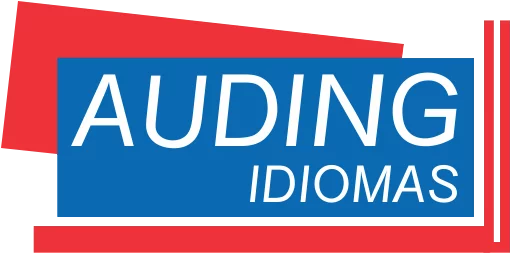Two world powers that share the same language, but reproduce it differently: this is the case of the United States and England.
When learning English, there are people who prefer American English and there are those who prefer British. Most of the time, this is due to the different accents that we are used to hearing through both British and American movies and series.
Each person then chooses the accent that most attracts them and ends up choosing to learn the specific English of that country. But is there any “English” that is easier to learn?
Come and understand the differences between the two manifestations of the language and find out which one is the coolest to study!
ORTHOGRAPHY
But first, let’s talk about history…
One of the main reasons American and British English have spelling differences is a man named Noah Webster.
Noah was an American author, teacher and lexicographer who wrote a dictionary – in addition to several books – and initiated a spelling reform around the 1700s. This move was taken as a symbol of American independence from England. Webster also believed that written language had to be the same as spoken language.
His legacy can be seen in “American” words such as color (from British English “colour”), honor (“honour”) and labor (“labour”).
VOCABULARY
Perhaps one of the most notable differences between American and British English is vocabulary. Words like trousers, football and trainers are not present in Friends (American sitcom), maybe just out of the mouth of Emily, one of Ross’s many ex-wives (spoiler alert!), and who is British.
The fact is that it is not known very well why some words have different meanings, maybe it’s just cultural. However, it is certain that attention must be paid to trying to speak the right word in each country.

SINGULAR / PLURAL
In British English, collective nouns can be used in the singular or plural. For example: “the team is playing tonight” or “the band are playing tonight”. Both are correct.
In American English, collective nouns are used in the singular. For example: staff refers to a group of employees; “the staff is doing great today”.
AUXILIARY VERBS
Auxiliary verbs are verbs that help the main verbs in the construction of sentences. In English, they are obe, do, have and will, for the most part. However, the British, as they adopt a more formal approach to the language, have the habit of using the auxiliary shall, to express an idea of the future.
“I shall go to school now.”
Americans do not use this structure, they prefer to use “will”.
“I will go to school now.”
FORMS OF VERBS
In British English, the formation of the Past Simple occurs through the ending -ed or -t, which is the participle of the verb in question. Verbs like burn, dream, lean, learn, smell, spell, spill can have the -ed ending (learned, spilled) or the –t ending (learnt, spilt).
She had dreamt/dreamed of being a dancer when she was young.
Americans prefer the ending -ed.
As a boy, he had dreamed about being on the basketball team.
TAG QUESTION
Question tag is a grammatical structure that turns a statement into a question. For example: “She’s Swedish, isn’t she?”
These structures also serve to encourage the recipient of the message to respond or agree with the person speaking. The British use question tags a lot, but the Americans don’t.
NOT THAT DIFFERENT
As much as they are different forms of the same language, British and American English have more similarities than differences.
With a few exceptions in very specific regions, Americans and Brits get along very well. Therefore, it is likely that any English speaker will understand both styles of the language.
When it comes to learning, I believe that neither of the two manifestations of the language is the best. As much as American English is simpler and less formal, the language is essentially the same.
So, whether you’re a fan of Friends or Harry Potter, the important thing is to learn English in the best way possible, no matter which style is your favorite!
SOURCES:
https://www.britannica.com/biography/Noah-Webster-American-lexicographer
https://www.britishcouncilfoundation.id/en/english/articles/british-and-american-english


